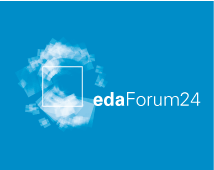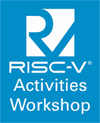Tightly and Loosely Coupled RISC-V Accelerators for Post-Quantum Cryptography
Georg Sigl (TU München / Fraunhofer AISEC, D)
Abstract
In July 2022 the North American standardization organization NIST has announced first winners of their PQC (Post-Quantum Cryptography) competition and announced an extension at the same time. The talk will start with some background why PQC is needed and about the threats of quantum computers for classical cryptography. After a summary of the results of the NIST competition, the talk will focus on hardware acceleration, which has been accompanying the NIST standardization process. We have contributed to this process with tightly coupled accelerators integrated into a RISC-V 32-bit processor, which combine medium performance and power gain with low resource overhead and high flexibility. This enables lattice based PQC schemes even on low cost and low performance microcontrollers. The talk presents results of our chip designs in 65nm and 22nm technology.
Curriculum Vitae
Georg Sigl finished his PhD in Electrical Engineering at Technical University Munich in 1992. Afterwards he held several positions in research and development at Siemens and Infineon. From 2000 until 2010 he was responsible for the development of new secure microcontroller platforms in Infineon’s Chip Card and Security division. Under his responsibility, two award winning platforms have been designed. In June 2010, he founded a new chair for Security in Electrical Engineering and Information Technology at Technical University of Munich. In parallel, he is driving embedded security research as director at the Fraunhofer Research Institute for Applied and Integrated Security AISEC Munich. His research interests include cryptographic implementations, side-channel and fault attacks, physical unclonable functions, hardware reverse engineering, and hardware-software security codesign.










